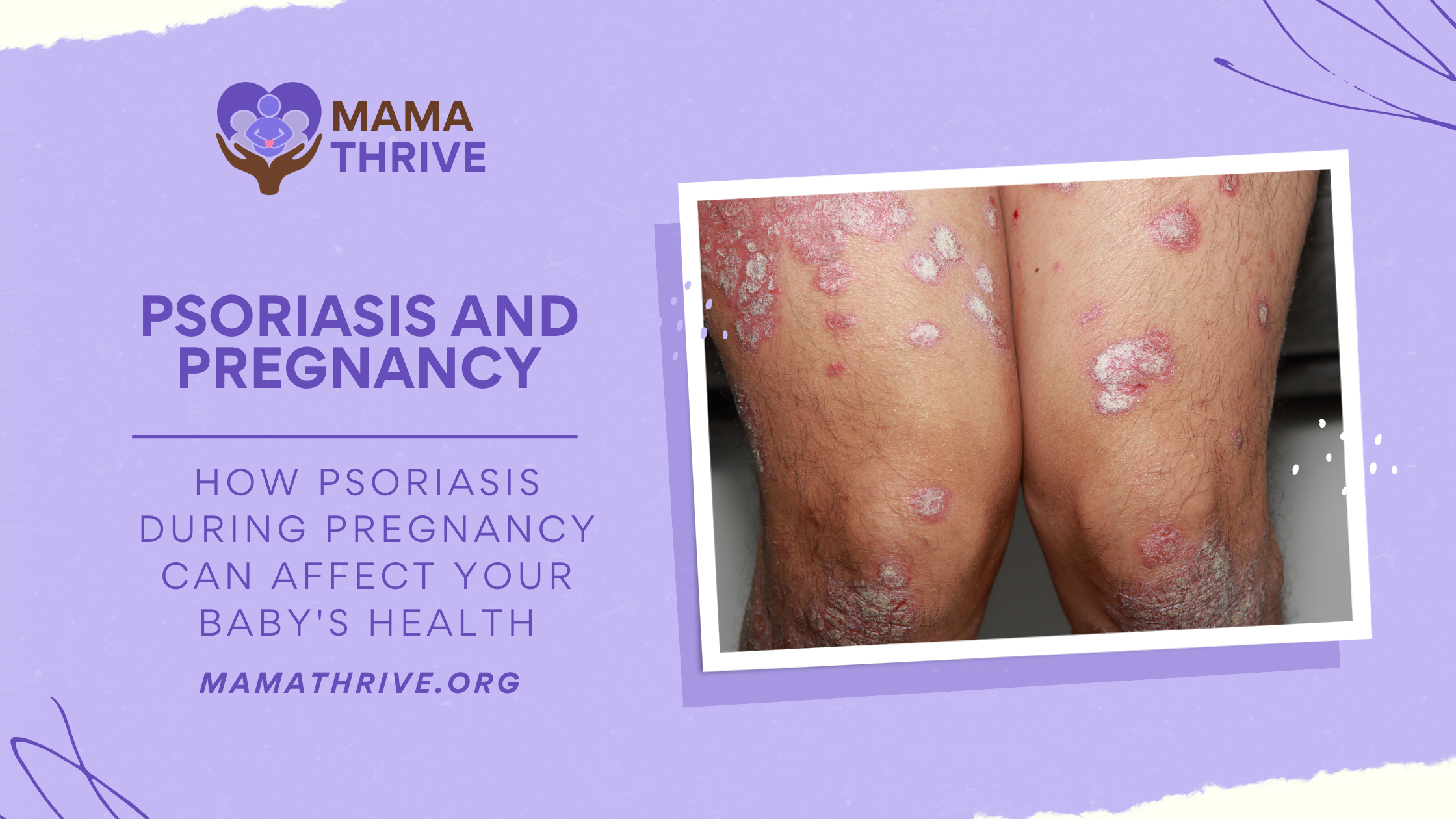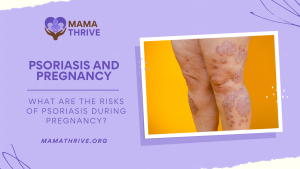Pregnancy is a transformative time filled with joy and anticipation, but for women with psoriasis, it can also bring a set of unique challenges. Psoriasis, a chronic autoimmune condition characterized by red, scaly patches on the skin, affects millions of people worldwide. When a woman with psoriasis becomes pregnant, there are concerns about how the condition may impact both her health and her baby’s development. Understanding the potential risks and finding solutions is crucial for ensuring a healthy pregnancy and a healthy baby.
What is the Connection Between Psoriasis and Pregnancy?
Psoriasis is an autoimmune disease where the immune system mistakenly attacks healthy skin cells, leading to rapid skin cell turnover and the formation of thick, red, scaly patches. This chronic condition can cause significant discomfort and emotional distress. According to the National Psoriasis Foundation (NPF), around 2-3% of the U.S. population suffers from psoriasis, translating to millions of individuals affected by this condition. Psoriasis can impact people of all ages, including women of childbearing age, raising specific concerns during pregnancy.
How Psoriasis Affects the Body
Psoriasis is characterized by the overproduction of skin cells. Normally, skin cells are replaced every 28-30 days, but in psoriasis, this process accelerates, leading to the buildup of skin cells in just 3-4 days. This rapid turnover results in the formation of thick, red, scaly patches, often accompanied by itching, pain, and sometimes even cracking and bleeding. The severity of psoriasis can vary widely, from small, localized patches to complete body coverage.
Impact of Pregnancy on Psoriasis
During pregnancy, hormonal changes can have varied effects on psoriasis. For some women, pregnancy leads to an improvement in psoriasis symptoms. This improvement is thought to be due to the natural immune suppression that occurs during pregnancy to protect the fetus, which may reduce the autoimmune activity that drives psoriasis.
However, other women may experience a worsening of their psoriasis symptoms during pregnancy. The immune system undergoes significant changes during pregnancy, which can impact the course of autoimmune diseases like psoriasis. Increased levels of estrogen and progesterone can influence the immune system’s behavior, potentially exacerbating psoriasis in some cases. Additionally, the stress and physical strain of pregnancy can trigger flare-ups in women who are predisposed to psoriasis.
Postpartum Considerations
After delivery, many women with psoriasis experience a rebound effect, where their symptoms may flare up more severely. The postpartum period involves a dramatic shift in hormone levels, which can destabilize the immune system. Managing psoriasis effectively during and after pregnancy requires close collaboration with healthcare providers to adjust treatment plans and ensure the health of both mother and baby.
Potential Effects on the Baby
Premature Birth
Women with severe psoriasis may have a higher risk of preterm birth, which occurs when a baby is born before 37 weeks of gestation. The American Academy of Dermatology (AAD) highlights that severe inflammation associated with psoriasis can contribute to early labor. This inflammation can trigger the release of certain chemicals in the body that initiate labor contractions prematurely. Preterm birth can lead to a range of complications for the baby, including respiratory distress syndrome, developmental delays, and increased risk of long-term health issues such as cerebral palsy.
Low Birth Weight
Babies born to mothers with severe psoriasis are at a higher risk of having a low birth weight, defined as weighing less than 5 pounds, 8 ounces at birth. This condition, as noted by the National Health Institute (NIH), can lead to various health issues in newborns. Low birth weight babies often face difficulties in breathing, maintaining body temperature, and higher susceptibility to infections due to their underdeveloped immune systems. Additionally, they may have feeding problems and are at a higher risk for long-term health problems such as diabetes, heart disease, and hypertension later in life.
Preeclampsia
Psoriasis is associated with an increased risk of preeclampsia, a serious pregnancy complication characterized by high blood pressure and signs of damage to other organ systems, often the liver and kidneys. Preeclampsia can affect the blood flow to the placenta, limiting the baby’s supply of oxygen and nutrients. This restriction can lead to intrauterine growth restriction (IUGR), where the baby does not grow at the expected rate during pregnancy. Preeclampsia can also lead to preterm birth, low birth weight, and in severe cases, it can pose life-threatening risks to both the mother and the baby. It is essential for pregnant women with psoriasis to have regular prenatal check-ups to monitor and manage their blood pressure and overall health to mitigate the risks associated with preeclampsia.
Learn about other risks of pregnancy.
Managing Psoriasis During Pregnancy
Effective management of psoriasis during pregnancy is crucial for minimizing risks to both the mother and the baby. Here are some strategies based on guidance from health authorities:
- Medication Management: Not all psoriasis treatments are safe for use during pregnancy. Women must work closely with their healthcare providers to adjust their medication regimen. Topical treatments are often preferred over systemic treatments due to their lower risk of adverse effects.
- Monitoring and Regular Check-ups: Regular prenatal visits are essential for monitoring the health of both the mother and the baby. This helps in early detection and management of potential complications such as preeclampsia and low birth weight.
- Healthy Lifestyle Choices: Maintaining a healthy lifestyle can help manage psoriasis symptoms and support a healthy pregnancy. The Centers for Disease Control and Prevention (CDC) recommends a balanced diet, regular exercise, and stress management techniques such as prenatal yoga or meditation.
- Support and Education: Pregnant women with psoriasis should seek support from healthcare providers, support groups, and educational resources provided by organizations like the NPF. This support network can offer valuable information and emotional support throughout the pregnancy journey.
Conclusion
Psoriasis during pregnancy can pose several risks to the baby’s health, including premature birth, low birth weight, and preeclampsia. However, with proper management and support, these risks can be minimized. Pregnant women with psoriasis should work closely with their healthcare providers to ensure they receive the safest and most effective treatment options, regular monitoring, and support for a healthy pregnancy. By understanding the potential impacts and taking proactive steps, women with psoriasis can navigate their pregnancy with confidence and optimism, ensuring the best possible outcome for their baby.





